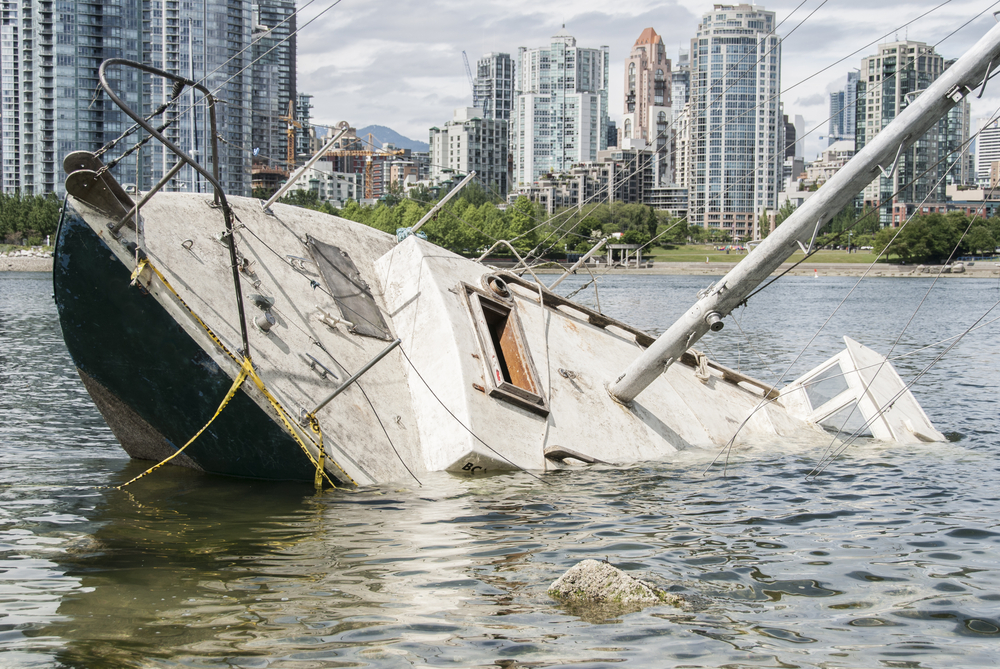One month ago to the day, over 4,000 passengers and crewmembers onboard the Carnival Triumph experienced one of the most highly-publicized cruise ship accidents in the history of cruising. Not only did the ship lose power following a fire in the vessel’s engine room, leaving the ship adrift in the Gulf of Mexico, but the days that followed will forever be remembered as some of the most appalling and gruesome anyone has ever had to experience at sea.
Nicknamed the “Cruise from Hell,” the Carnival Triumph slowly made its way back to land with the help of three small tugboats, while those onboard were forced to endure five days of difficulties with non-working toilets, overflowing sewage, unbearable heat, and barely anything to eat. But the nightmare didn’t end once passengers reached land. The vessel docked in Mobile, Alabama, not the original port of Galveston, Texas, nor the port of Progreso, Mexico, which would have been a much more logical option due to the fact that it was roughly 150 miles away from the accident scene, whereas Mobile was roughly 500 miles away. Passengers then had to find transportation back to Galveston, prolonging their hardship even more.
Some critics have dismissed passenger recounts as ludicrous or exaggerated, claiming no one was in any real danger, but one passenger has already published a tell-all memoire about the experience onboard the Triumph, revealing just how hellish the cruise vacation really was, and just how little the cruise industry is working to improve safety conditions fleet-wide or cater to those who were affected by the Triumph cruise ship fire.
Triumph passenger Christina Peaden, of Galveston Texas, kept a journal while onboard the vessel, which she later turned into a memoire about the accident experience. The self-published “Triumph Over Calamity: What Really Happened on the Carnival Triumph — A Memoir” was available on Amazon on February 27, less than two weeks after the damaged vessel reached land.
In the short book, Peaden recounts the experiences she, her husband Mark, and her three young daughters endured while the Triumph made its way to Mobile, revealing just how dire the conditions onboard the vessel were.
In one of the passages, Peaden notes that on February 11, the captain decided to have an open bar day, which was later closed due to the compromised safety of those onboard. The over-serving of alcohol is already a problem that many cruise lines are being criticized for – especially Carnival. If alcohol consumption during normal working conditions on a vessel are already dangerous as it is, how could the captain of the Triumph possibly think it was a good idea to pass out free alcohol at will without anyone to monitor passengers to make sure they wouldn’t get hurt or fall overboard? Without any power, the Triumph had no way to report any injuries or fatalities, nor did passengers have working phones to call out for help. If anyone would have been injured or killed, it probably wouldn’t even be revealed until much later after the vessel’s operators realized anyone was hurt or missing.
Peaden goes on to describe how other passengers were “acting like savages, uncivilized, and closer to apes than humans,” which is understandable, given that the conditions onboard the vessel were nothing short of primal. Barely any toilets were working and passengers recounted being handed out plastic bags to defecate in. That alone sounds pretty uncivilized, especially for a cruise line that has held a reputation for being a family-friendly “Fun Ship.”
Peaden shared her side of the story regarding the sanitation problem onboard:
“Jen [a Carnival crewmember] makes another announcement. If we have to go #1, we must use the shower. If we have to go #2, we must do this in red bags which will be provided. We must place the bags in the hallway, and a steward will come pick them up. Really??”
Peaden went on to say that the same crewmember requested that passengers refrain from throwing the bags overboard because it is a “violation of international maritime laws.”
It didn’t seem as though Carnival was too keen on abiding by international maritime laws when it placed the lives of over 4,000 people in danger. As per maritime law, cruise lines have a responsibility to reasonably protect everyone onboard from harm, including any accidents or illnesses. Not only did Carnival set sail after mechanical problems were reported on the sailing prior to the fire accident, but instead of towing the vessel to Progresso, chose to elongate the horrid experience for passengers by towing the vessel to Mobile instead.
Cruise ship safety has often been questioned, but following the Carnival Triumph debacle, all eyes are focused on the cruise industry, and many wonder if it will ever regain the popularity it once had.
Our cruise ship accident attorneys here at Lipcon, Margulies & Winkleman, P.A. have already filed a proposed class-action lawsuit against Carnival on behalf of passengers, but cruise ship safety is an issue that extends to all vessels across the world. If cruise operators don’t invest in serious improvements to their ships and to better train crewmembers in the event an accident does take place, it is unlikely travelers will have the same attitude toward cruising they once did.
Photo Credits:
Top Right: Cover of “Triumph Over Calamity” – Amazon.com
Bottom Left: Christina Peaden – khou.com
Published on March 7, 2013
Categories: Carnival Cruises, Cruise Ship Accidents, Cruise Ship Fires, Cruise Ship Injuries
Get Free
Consultation










